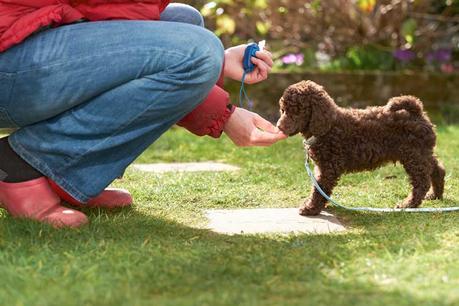Planning on getting a new puppy? Getting a new dog is an exciting event, but it can also be a stressful one. Here are three tips to ease some of the stress and guide you as you train your puppy.
Best Tips for Puppy Training
1. Reduce Barking
There's always an adjustment period that must occur when bringing a new puppy home. As they get used to new sights and sounds, it's not surprising that puppies will be vocal in reactions to these stimuli. One of the biggest questions that new dog owners have is just how to reduce barking. Luckily, there are tools that make this process so much easier. Instead of punishing your puppy for unwanted barking, use an ultrasonic dog trainer to teach her that this sort of behavior is not acceptable.
Also, read: How Many Hours on Average do Dogs sleep?
Ultrasonic trainers use high-frequency sounds to actually teach dogs what behavior is right and what is wrong. When you just can't seem to get your puppy to stop barking, point the dog trainer device at your dog, and push the button. This sends an ultrasonic signal to your dog and repeating this process whenever the behavior occurs actually teaches your puppy to avoid this behavior in the future.

2. Reward Good Behavior
Positive reinforcement of good behavior plays a huge role in training a puppy successfully. If you're having trouble getting your puppy to perform certain tasks, don't be afraid to give her rewards, such as giving her small pieces of food or allowing playtime with a favorite toy.
The way you present the reward will determine the response the puppy has to it, as well as the behavior that is ultimately reinforced. There are plenty of commands that can be taught to a puppy in this way. Present the reward in a way that signals to your puppy what command is to be followed. If you're training your puppy to sit, try holding the reward near the puppy's nose and moving it slowly backward. If you're wanting to teach your pet to follow you, hold the reward at waist level as you walk. Be sure to give your puppy a verbal command as you complete these actions. With a little time and practice, your puppy will learn the commands and exhibit the behaviors that you desire.
3. Prioritize Socialization
Introducing your puppy to new social situations is important for healthy development. You should begin socializing your puppy as soon as you bring her home since the socialization period typically occurs when a puppy is between seven and fourteen weeks old. During this time period, introduce the main people and pets that will be a part of your puppy's life. Boundless energy, enthusiasm, and inquisitiveness allow puppies to explore other people and even other species during this time in a puppy's life. Take advantage of it and ensure that these new experiences are fun and positive for your new best friend.
Puppies can learn so much at such a young age. By following these tips, you'll ensure that your new best friend has a positive growing experience and a great transition into adult life.
